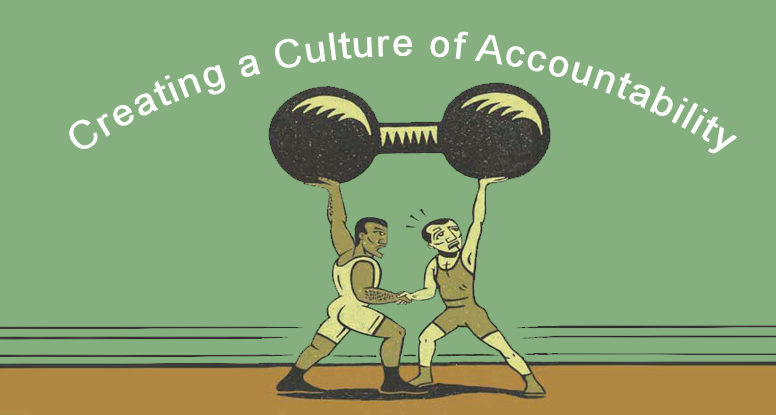
Creating a Culture of Accountability
Guest Blogger: David Langiulli from Fundraising Leadership
In his 2002 business classic, The Five Dysfunctions of a Team, Patrick Lencioni describes “Avoidance of Accountability” as one of the core behaviors that teams exhibit when they are dysfunctional. In Pat’s words: “In the context of teamwork…it refers specifically to the [un]willingness of team members to call their peers on performance or behaviors that might hurt the team.”
Creating a culture of accountability in teams is easier said than done. Many teams (even ones where the members have excellent interpersonal relationships) avoid accountability because of the possible discomfort involved with having difficult conversations that may be emotionally charged.
Recently, I co-led a workshop on this topic with Janice Cunning at the Association of Fundraising Professionals World Congress in Toronto. We walked the audience through a number of exercises to help them create a culture of accountability on their teams. In one of the exercises, Janice and I demonstrated what an accountability conversation sounds like between a nonprofit manager and an employee:
Manager: “Will you do X?”
Employee: (Yes, No, Counter-offer). “Yes. I’ll do X.”
Manager: “When will you do it?”
Employee: “By the close of business next Tuesday.”
Manager: “How will I know?”
Employee: “I’ll review it with you in our 1:1 next Wed.”
To establish an environment of accountability, it’s important to do so without judgment or harsh criticism. That is to say, the manager does not “judge” the employee as “bad,” “stupid,” “lazy,” etc., if he or she misses a deadline, chooses to change course (for a good reason), or fails in a task. Of course, should a pattern of missed deadlines/commitments become apparent, then it is incumbent for a manager to have a conversation about performance and possible dismissal.
In the above example, here’s what the follow-up conversation on a team with a culture of accountability might look like during the following Wednesday’s 1:1 meeting between the nonprofit manager and employee. Accountability is at the top of the agenda:
Manager: “So, how did it go with X?”
Employee: “It’s done (or it’s not done)”
Manager: (If done) “What was the result?” (If not done) “Why not? What do you intend to do now?”
Employee: “This was the result.” Or, “X is no longer necessary because…”
Or, “I tried X, and it failed”, etc.
Manager: “What did you learn?” (always harvest the learning) “What’s next?”
When I led teams in the corporate sector and non-profit world, we always started the weekly staff meeting with accountability of action items from the previous week. This practice created environments of trust, transparency, and accountability. When such culture exists on a team, it is possible for colleagues (not just the leader) to hold their teammates accountable similarly. Especially when inputs are required for work or the action to be taken affects someone else on the team
Thank you to our guest blogger, David Langiulli, an executive coach and trainer who helps leaders flourish and thrive. David, Janice, and Silvia, I will be training nonprofit leaders on how to have crucial accountability conversations in the new year through our Coaching Essentials for Nonprofit Leaders course. Space is limited. Register Now!
